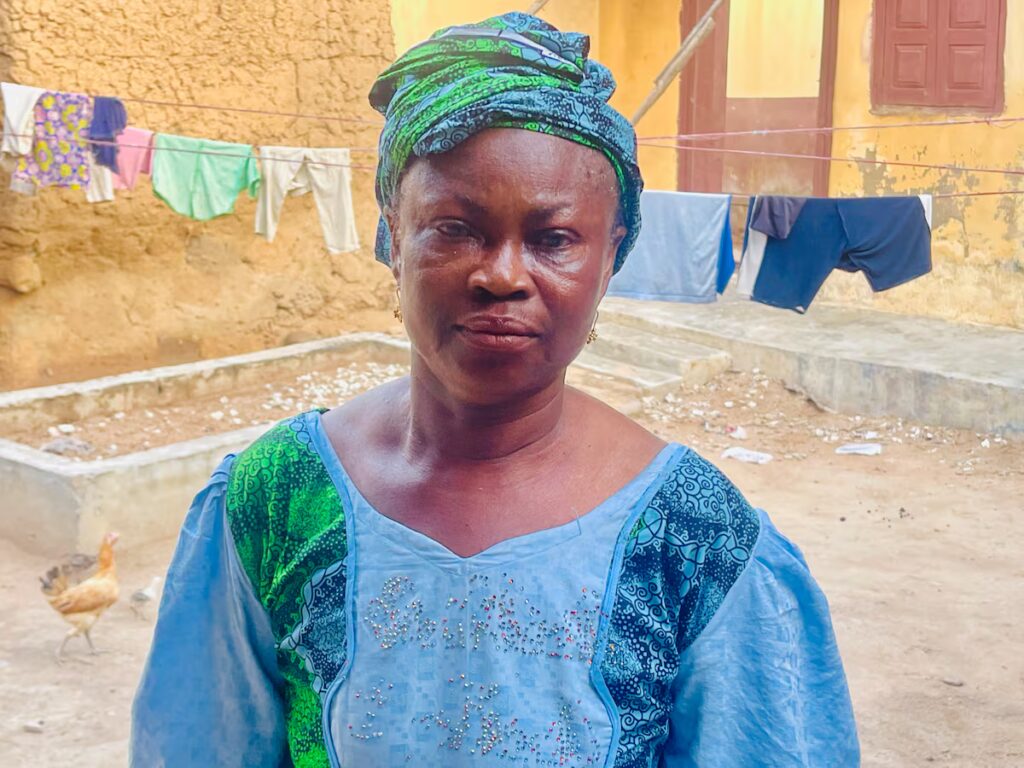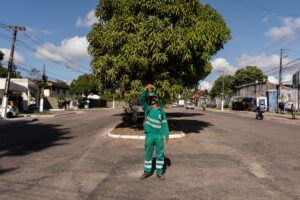
Aliru Adebayo Idris, now deceased, entered the civil service in Kwara State, Nigeria, as a primary school teacher in 1978, and worked for 35 years until his retirement in 2013. Idris retired as a Grade 12 civil servant and received a monthly pension of 20,000 naira (€10.91) until his death. His bonuses amounted to more than one million naira (545.70 euros), but when he died on April 20, 2024, Kwara State had not yet paid them. Unfortunately, his pension of 20,000 naira was not in line with the prevailing minimum wage in Nigeria at the time, which was 30,000 naira.
In Nigeria, pension is a periodic payment paid into a person’s bank account from his or her retirement savings account (RSA) balance, while gratuity is a one-off payment paid by the employer when a worker retires or resigns. To receive this amount, officials must have served the state for 35 years before they can retire and be entitled to bonuses, which will be based on their level when they stop working. Bonuses should normally be paid immediately after retirement. However, the reality is that retirees spend years waiting to collect what they are entitled to.
Idris suffered a stroke in February 2018 and his healthcare workers have since taken him to hospital for treatment. The doctor announced to them that they needed to have surgery, which would cost 200 thousand naira (about 109.15 euros). However, all efforts to collect the bonus to finance the surgery were in vain, and when his condition worsened, his relatives had to ask for a loan. Idris struggled for seven years with the consequences of the stroke and until the day of his death he was unable to collect his bonus. Only after his death, through pressure, did his family manage to obtain the due tip of 200 thousand naira.
“We spent more than two million (1,793 euros) on his illness. We were constantly in and out of the hospital. If he had received his bonus while he was alive, he would have been able to enjoy that money. The impotence of not having collected it aggravated his illness”, his widow Maimunat Aliru explains to EL PAÍS. It was she who dedicated herself to begging the Government to pay her the tip due, since she had children and land that they could have cultivated with that money.
Idris’ story is the same for thousands of pensioners in Nigeria who, after 35 years of serving the state, end up living in poverty, with health problems and unable to cover their needs in old age, because the administration does not pay them what they are entitled to.
A long-standing problem
In recent months, problems related to pensions and bonuses have sparked controversy at the national and state levels. Across Nigeria, retired police officers staged coordinated protests in July 2025 to demand exemption from the Contributory Pension Scheme (CPS) and the creation of a dedicated Police Pension Board, arguing that meager bonuses of between two and three million naira after decades of service and pensions of around 20,000-30,000 naira per month have pushed many into retirement. poverty.
At the same time, the fate of 3,060 Kwara pensioners remains uncertain following a 17-year legal battle over $502 million in gratuity and pension arrears dating back to 2008, which stalled when they rejected the state’s offer to pay only half the debt without covering litigation costs.
Budgit, a Nigerian civic organization committed to promoting transparency and accountability, he confirmed In a November 2024 report, 32 of Nigeria’s 36 states owe a total of 524.63 billion naira in unpaid pensions and gratuity.
The old pension plan suffers from a lack of adequate accountability
Austine Ovbiebo, Relationship Manager at Pension Alliance Limited
Austine Ovbiebo, Relationship Manager of Pension Alliance Limited (PAL Pension Scheme), a pension fund administrator in Lagos, explains to EL PAÍS that the reason for the delay in the payment of pensions and pensioners’ gratuity is due to mismanagement of funds and lack of availability, inadequate accountability, economic challenges, lack of law enforcement and inherited debts, and highlights that the old pension plan did not manage pension funds properly. retired. “The previous government, in the last 10 years, did not provide adequate provisions for payments. This undoubtedly causes delays. Having not foreseen the payment delays of previous years, they will now have difficulty paying the current pensioners,” he says.
“The old pension plan suffers from a lack of accountability. Even when two or three years ago large sums, such as 10 billion naira, were allocated to pay pensioners, the funds are not properly monitored or accounted for. This mismanagement occurs at the federal, state and local levels, making it unclear how the funds are used,” he explains to EL PAÍS.
Public employees with meager pensions
The laws provide huge benefits to former governors and lieutenant governors, ranging from properties worth hundreds of millions to medical services, vacations and automobiles, all at the expense of state coffers, with most of them having served for only eight years. On the other hand, public employees who have worked for decades receive meager and irregular pensions, and experience delays in the payment of their bonuses. About 24 ANDStates, including Kwara state in north-central Nigeria, have passed laws to grant pensions to their former governors and deputy governors.
Aliru’s story is not the only one. Suleiman Adama, a 65-year-old widow, also entered the civil service as a primary school teacher in 1984, and now receives 160 naira (0.081 euros) a month. He worked for the Kwara State government for 35 years until his retirement in 2019. His bonus would amount to 2,800,000 naira (1,527 euros), but six years later and after numerous efforts he managed to collect only 500,000, and to date the rest has not been paid to him.
“This situation affects us deeply because, for months, pensions have not been paid regularly and some have stopped receiving them. There are pensioners who have to look for other means of subsistence. But many fall into precariousness when, for example, they have lost their sight or can no longer walk”, he explains to EL PAÍS. He asks the government to pay pensions regularly and to pay bonuses in a lump sum. According to them, the state administration used them until old age and now, at their age, they cannot look for a new job.
Many former state and local employees who retired after 2016 still have not received what they are entitled to
Lanre Osho, Deputy Project Monitoring Coordinator at Elites Network for Sustainable Development (ENETSUD)
Lanre Osho, deputy coordinator of project monitoring at the Network of Elites for Sustainable Development (ENETSUD), a Nigerian civil society organization that promotes good governance, transparency and accountability, explains to EL PAÍS that the failure to pay bonuses to pensioners is an act of negligence on the part of the state government which shows that the well-being of the elderly is not a priority. And this does not happen only in Kwara State, he reports, but in almost all the states of the federation.
“The current administration is doing nothing to alleviate the suffering of pensioners. Many former local and state government employees who retired after 2016 have still not received what they are entitled to. It is terrible,” he explains.
Osho suggests that state governments adopt the federal government’s Contributory Pension Plan (CPS) so that every retiree can receive their benefits on time, and comments that his organization has not stopped advocating for the welfare of the elderly, to force the state government to take necessary measures.
For his part, Ovbiebo explains that the new pension plan was created to cover the deficit of the old pensions and says that the main objective of the CPS is to pay pensioners when due. However, as of December 31, 2024, only 11 states had fully implemented CPS.
Ovbiebo reiterates that the new pension plan reduces embezzlement and irresponsibility to almost zero. “There is enough money to serve pensioners both now and in the years to come, and there is a regulatory framework to monitor the activities of stakeholders in the pension sector,” he explains.
The Acting Head of Service and Permanent Secretary, Kwara State Personnel Welfare, Olufunke Shittu, explained that the state government had no pension liabilities, but gratuity had accumulated during the previous administration because the number of pensioners did not match the payments made, which had created a huge gap. He noted that the government is still paying gratuity arrears inherited from the previous administration, but that efforts are being made to ensure that all arrears are cleared soon.





